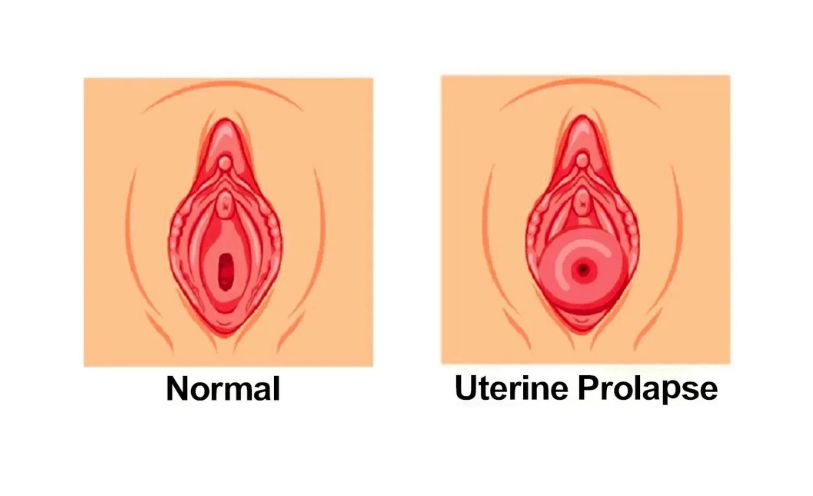
Uterine prolapse is a condition that affects many women, especially those who have gone through multiple pregnancies, menopause, or experience weakened pelvic floor muscles. It occurs when the uterus descends from its normal position into the vaginal canal due to loss of support. If left untreated, uterine prolapse can worsen over time, affecting quality of life and leading to complications.
If you are searching for prolapse uterus treatment in Sector 10 Gurgaon or reliable options for prolapse vaginal surgery in Sector 10 Gurgaon, expert guidance from an experienced laparoscopic surgeon like Dr. Nehal Dhaduk at Atharva Polyclinic, Sector 10A, Gurgaon, can help restore your health and comfort.
This article explains the stages, symptoms, treatment options, and surgical approaches for uterine prolapse, along with post-surgery care and frequently asked questions.
What is Uterine Prolapse?
Uterine prolapse occurs when pelvic floor muscles and ligaments weaken, causing the uterus to slip down into or outside of the vaginal canal. The severity depends on the extent of descent, categorized into different stages.
Stages of Uterine Prolapse
Stage 1:-The uterus descends slightly into the vaginal canal but does not protrude.
Stage 2:-The uterus drops further into the vagina and may reach close to the vaginal opening.
Stage 3:-The uterus protrudes out of the vaginal opening.
Stage 4 (Complete Prolapse):-The uterus is completely outside the vagina.
Common Symptoms of Uterine Prolapse
- Feeling of heaviness or pulling in the pelvis
- Tissue protruding from the vagina
- Difficulty with urination or bowel movements
- Lower back pain
- Painful intercourse
- Recurrent urinary tract infections (UTIs)
- Vaginal bleeding or discharge
If you experience these symptoms, consult an expert for early diagnosis and treatment. Women living in Sector 10, Sector 11, Sector 12, Sector 13, and Sector 14 Gurgaon can visit Atharva Polyclinic for specialized care.
Treatment Options for Uterine Prolapse
Treatment depends on the stage of prolapse, overall health, and the patient’s lifestyle.
1. Non-Surgical Treatment
- Pelvic Floor Exercises (Kegels): Strengthens supporting muscles.
- Pessary Device: A removable device inserted into the vagina to support the uterus.
- Lifestyle Modifications: Maintaining healthy weight, avoiding heavy lifting, and managing constipation.
2. Surgical Treatment
When symptoms are severe, surgery is often the most effective option. Surgical treatments include:
- Vaginal Repair Surgery: Restores pelvic floor support.
- Hysterectomy (Uterus Removal): Recommended in advanced cases.
- Laparoscopic Surgery: A minimally invasive approach that offers faster recovery, less pain, and fewer complications..
Instructions After Prolapse Surgery
Proper care after surgery is essential for smooth recovery.
- Avoid lifting heavy objects for at least 6–8 weeks.
- Take prescribed medications and attend follow-up appointments.
- Maintain good hydration and a fiber-rich diet to prevent constipation.
- Perform gentle pelvic floor exercises after medical approval.
- Refrain from sexual intercourse until cleared by your doctor.
- Report unusual symptoms such as excessive bleeding, fever, or severe pain immediately.
Why Choose Dr. Nehal Dhaduk in Gurgaon?
- Experienced Laparoscopic Surgeon specializing in gynecological surgeries.
- Offers advanced techniques for prolapse uterus treatment in Sector 10 Gurgaon.
- Conveniently located at Atharva Polyclinic, Sector 10A, easily accessible from Sector 11, Sector 12, Sector 13, and Sector 14 Gurgaon.
- Personalized care and patient-centered approach.
FAQs on Uterine Prolapse
Q1. Can uterine prolapse improve without surgery?
Mild cases can improve with pelvic floor exercises and pessary devices, but advanced cases usually need surgery.
Q2. Is uterine prolapse surgery safe?
Yes, with modern laparoscopic techniques, surgery is safe, minimally invasive, and offers quick recovery.
Q3. How long is the recovery period after prolapse vaginal surgery?
Most women can return to normal activities within 4–6 weeks, though complete healing may take a few months.
Q4. Can uterine prolapse come back after surgery?
Recurrence is rare but possible. Following medical advice, exercises, and lifestyle modifications reduce the risk.
Q5. When should I consult a doctor?
If you notice symptoms like pelvic heaviness, vaginal bulge, or difficulty urinating, consult a gynecologist or laparoscopic surgeon immediately.
Conclusion
Uterine prolapse is a common but treatable condition. With proper diagnosis and expert surgical care, women can regain comfort and confidence. If you are looking for prolapse uterus treatment in Sector 10 Gurgaon or considering prolapse vaginal surgery in Sector 10 Gurgaon, consult Dr. Nehal Dhaduk at Atharva Polyclinic, Sector 10A, Gurgaon for advanced, minimally invasive solutions.
